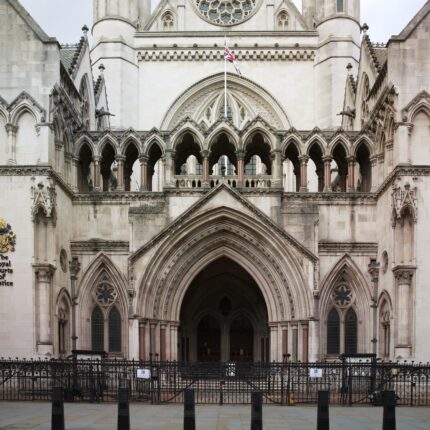
This is how we rein in activist charities blocking deportations
19 Sep 2025
If the Government wants to control our borders, it must confront the third sector
This article was first published in The Telegraph.
On the fourth attempt, the Government this week sent its first migrant to France under its new “one in, one out” deal. The plan was for Britain to swap migrants who arrive illegally across the Channel for migrants in France with a link to Britain. Supposedly, this would make those contemplating an illegal crossing think again. However, the first three attempts fell apart, with planes departing with empty seats after legal challenges. Key to those challenges are activist charities.
The most important of these is Bail for Immigration Detainees (BiD). Government rules stated that immigrants in removal centres ought to be provided with a notebook drawn up by BiD, on welfare grounds. The charity provides legal advice to people in immigration detention, which includes a 12-page leaflet on how migrants can avoid being deported. It even has template letters that migrants can use, as well as tips on legal arguments they can make to avoid being removed.
BiD has received more than £400,000 in Comic Relief donations, as well as benefiting from charitable tax relief. It is able to do this because, under Tony Blair, charities were allowed to be set up just to promote human rights, which is what BiD has as its charitable objective. That allows it to focus on helping “people of a particular ethnic or racial origin”. Despite this obviously allowing for much politicised charities, the Conservatives kept the right of charities to be formed to promote human rights in the Charities Act 2011.
Since the initial legislation, there has been a massive growth in the number of charities who involve themselves in political issues. Nowhere is that more obvious than when it comes to immigration. When the Rwanda Bill went to the House of Lords, a coalition of 265 charities criticised the legislation, calling it “a threat to the universality of human rights” and calling on peers to reject the Bill. These charities were recipients of £209m from the Government.
Another example was the Court of Appeals decision that the High Court was mistaken and that removing asylum seekers to Rwanda was unlawful. Although the Government was eventually able to overcome this, the delay helped ensure the failure of the Rwanda Plan. The initial High Court challenge was made by two charities and a union: Detention Action, Care 4 Calais, and the PCS. The Court of Appeals challenge was made by Asylum Aid, another charity which was also the recipient of government funds that it used to advise migrants living in Westminster, whose first language wasn’t English, on how they could access benefits.
Asylum Aid also offers legal representation and assistance to asylum seekers, as well as publishing research as part of their lobbying efforts. This is a well-funded sector, despite the best efforts of charities to depict themselves as underdogs: Detention Action had an income of over £600,000 at one point. Much of this is driven by grants from large foundations, rather than donations from ordinary members of the public.
Even judges have become involved in these activist charities. Judge Fiona Beach, who let a knife-wielding drug dealer remain in Britain, was once a director of Asylum Aid and provided immigrants with free legal representation for BiD. Similarly, Judge Melissa Canavan allowed a rapist and also a crack cocaine dealer to stay in Britain. She had previously worked for the Refugee Legal Centre and represented migrants for BiD.
All this is a far sight from what the British public associate with charities. This is enabled by our generous human rights laws and overly lax charity legislation. Instead of representing their victims, far too many charities and lawyers seem far more concerned with preventing criminals being removed. If the Government does want to take control of the borders then it will have to confront the charity sector. The easiest way would be to amend the Charities Act so that human rights is no longer sufficient reason for a charity to operate. That would not only help prevent the continued coddling of criminals, but also reduce perceptions of political bias in the charity sector, restoring its reputation after years of public political and legal battles.

